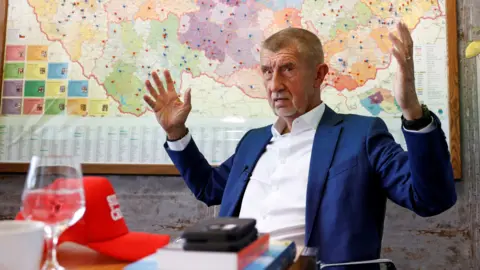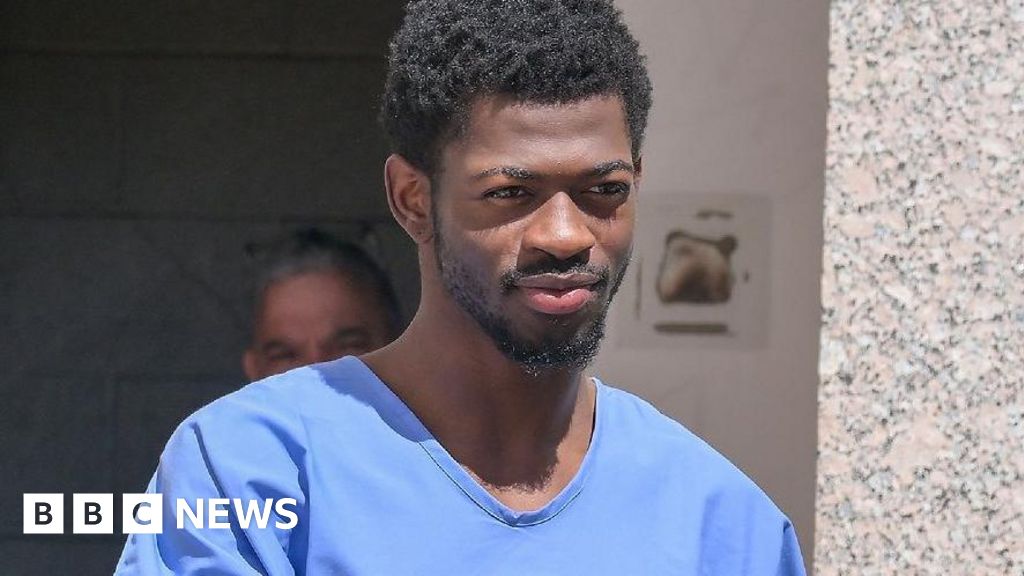The violence in southern Syria's Druze-majority Suweida province has escalated alarmingly, as accusations arise against Syrian government forces for reportedly carrying out a horrific massacre at a local hospital during recent sectarian clashes. The BBC's team, led by reporter Jon Donnison, traveled to Suweida's National Hospital, where medical staff recounted harrowing tales of patients being killed indiscriminately within the hospital's wards.
Upon entering the hospital, an unsettling odor permeated the air, revealing the somber aftermath of the claimed massacre. Decomposing bodies lay in white plastic bags in the hospital’s parking lot, with some tragically exposed to the elements. Dr. Wissam Massoud, a neurosurgeon at the facility, expressed the gravity of the situation, stating, “It was a massacre.” According to Dr. Massoud, Syrian soldiers arrived at the hospital under the pretext of restoring peace but instead unleashed terror upon the patients—ranging from children to the elderly.
A hospital volunteer, Kiness Abu Motab, chimed in, emphasizing the targeting of minority groups in a nation they believe should uphold democratic values. "What is their crime? Just for being a minority?" he questioned, highlighting the chilling reality faced by the Druze community. Another grim account shared by Osama Malak, an English teacher near the hospital, recounted the tragedy of an eight-year-old disabled boy shot in the head during the turmoil inside the hospital.
Despite frequent allegations of atrocities traded among various factions involved in the conflict, uncertainty looms regarding the full extent of the massacre. Estimates suggest more than 300 may have perished during the attacks, although these figures remain unverified. The Syrian defense ministry has acknowledged “shocking violations” purportedly committed by armed individuals in military uniforms and has promised a thorough investigation into the incidents.
Access to Suweida has been heavily restricted, complicating efforts to gather firsthand evidence of the situation. The city, now essentially besieged, has witnessed fierce confrontations, with distinct evidence of devastation visible throughout—burned shops and battered vehicles lining the streets. Reportedly, while sections of the province have fallen back under government control, Suweida city maintains a significant Druze presence.
In a heart-wrenching encounter before leaving the hospital, the BBC met eight-year-old Hala al-Khatib, whose face bore the scars of violence, including a bandaged head from where a gunman had fired upon her. Tragically, Hala is unaware that both her parents have been killed in the chaos, symbolizing the profound and personal toll of the conflict.
As both local residents and international observers grapple with the unfolding events, the call for accountability and justice resonates loudly. The aftermath of alleged war crimes continues to reverberate throughout the region, underlining the urgent need for a concerted humanitarian response.
Upon entering the hospital, an unsettling odor permeated the air, revealing the somber aftermath of the claimed massacre. Decomposing bodies lay in white plastic bags in the hospital’s parking lot, with some tragically exposed to the elements. Dr. Wissam Massoud, a neurosurgeon at the facility, expressed the gravity of the situation, stating, “It was a massacre.” According to Dr. Massoud, Syrian soldiers arrived at the hospital under the pretext of restoring peace but instead unleashed terror upon the patients—ranging from children to the elderly.
A hospital volunteer, Kiness Abu Motab, chimed in, emphasizing the targeting of minority groups in a nation they believe should uphold democratic values. "What is their crime? Just for being a minority?" he questioned, highlighting the chilling reality faced by the Druze community. Another grim account shared by Osama Malak, an English teacher near the hospital, recounted the tragedy of an eight-year-old disabled boy shot in the head during the turmoil inside the hospital.
Despite frequent allegations of atrocities traded among various factions involved in the conflict, uncertainty looms regarding the full extent of the massacre. Estimates suggest more than 300 may have perished during the attacks, although these figures remain unverified. The Syrian defense ministry has acknowledged “shocking violations” purportedly committed by armed individuals in military uniforms and has promised a thorough investigation into the incidents.
Access to Suweida has been heavily restricted, complicating efforts to gather firsthand evidence of the situation. The city, now essentially besieged, has witnessed fierce confrontations, with distinct evidence of devastation visible throughout—burned shops and battered vehicles lining the streets. Reportedly, while sections of the province have fallen back under government control, Suweida city maintains a significant Druze presence.
In a heart-wrenching encounter before leaving the hospital, the BBC met eight-year-old Hala al-Khatib, whose face bore the scars of violence, including a bandaged head from where a gunman had fired upon her. Tragically, Hala is unaware that both her parents have been killed in the chaos, symbolizing the profound and personal toll of the conflict.
As both local residents and international observers grapple with the unfolding events, the call for accountability and justice resonates loudly. The aftermath of alleged war crimes continues to reverberate throughout the region, underlining the urgent need for a concerted humanitarian response.



















